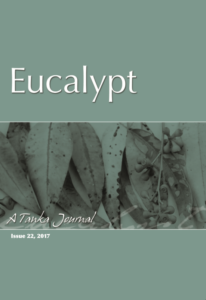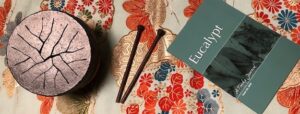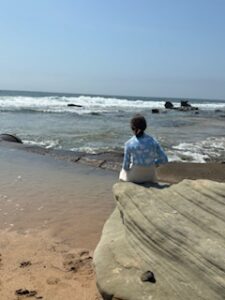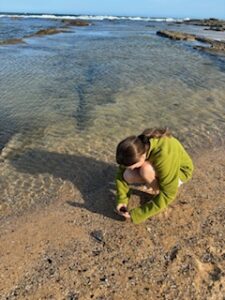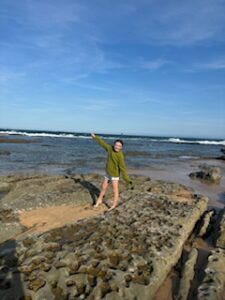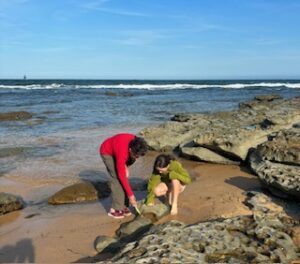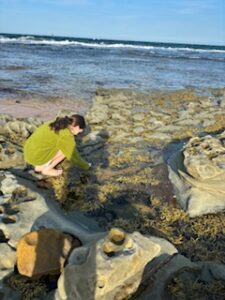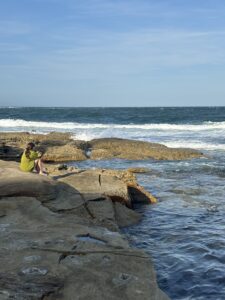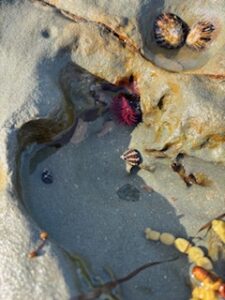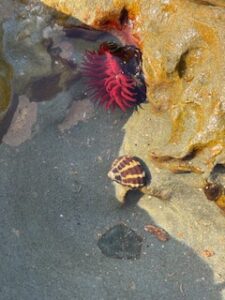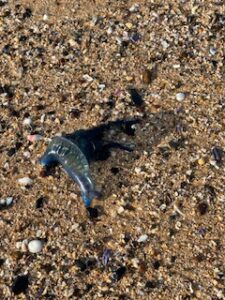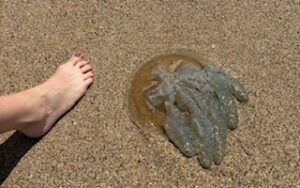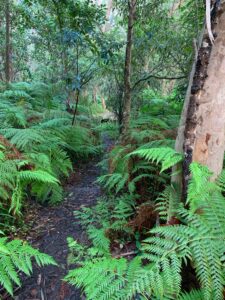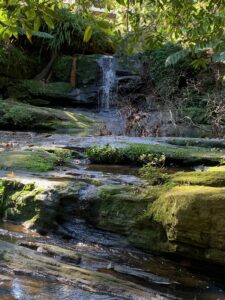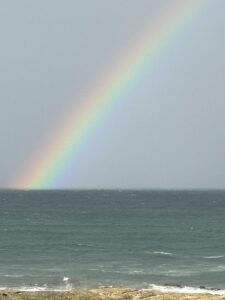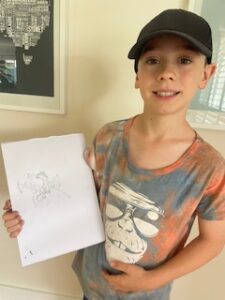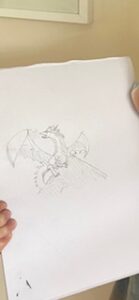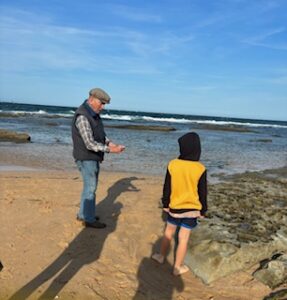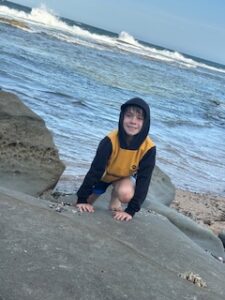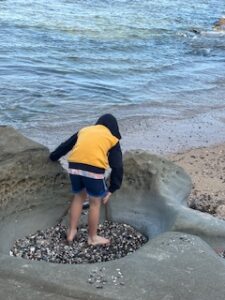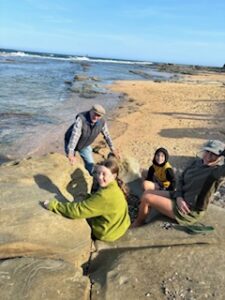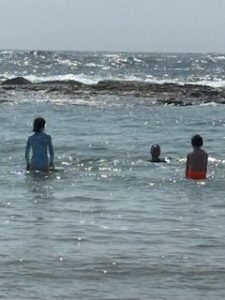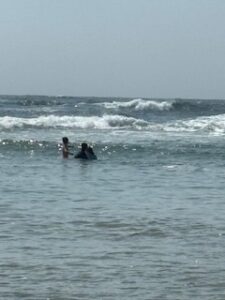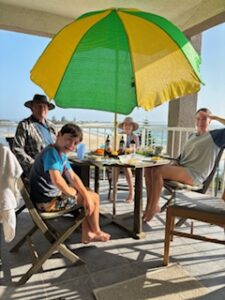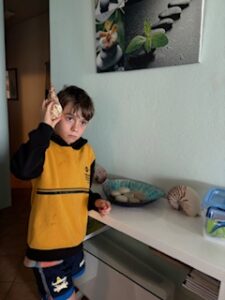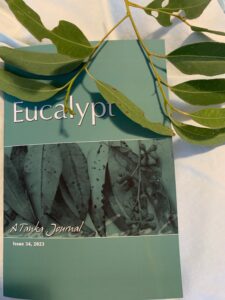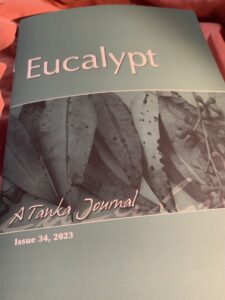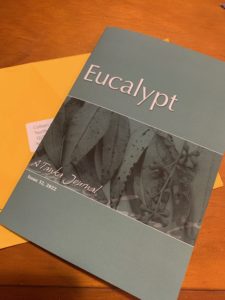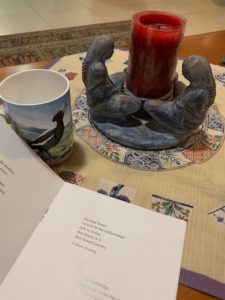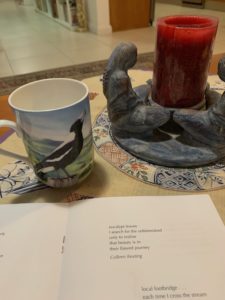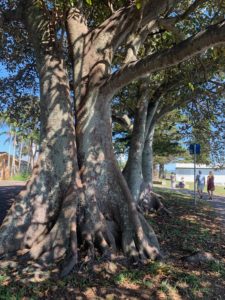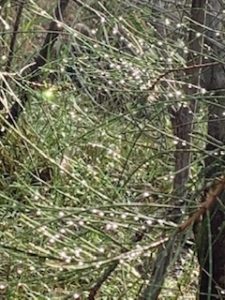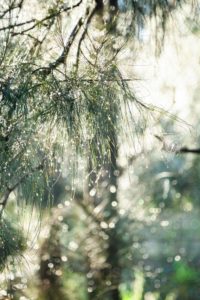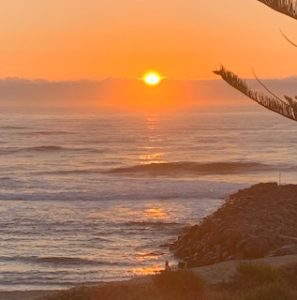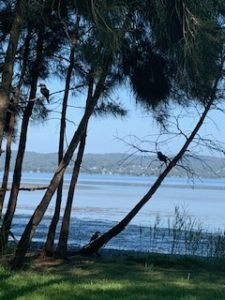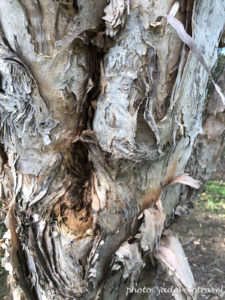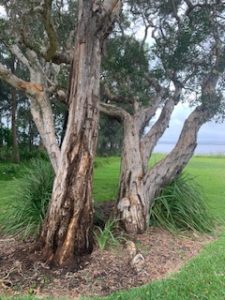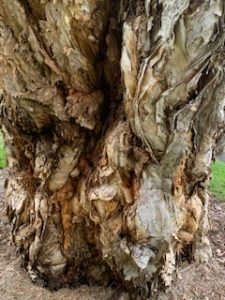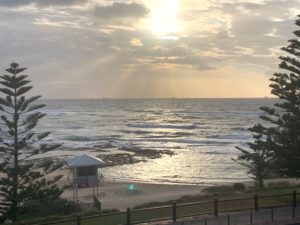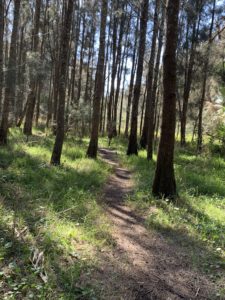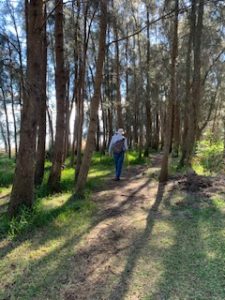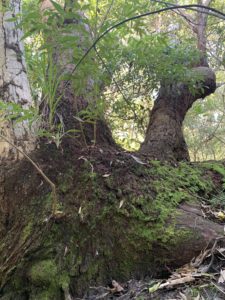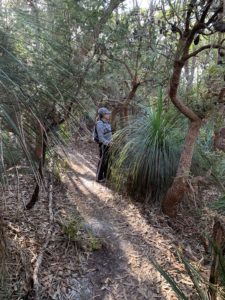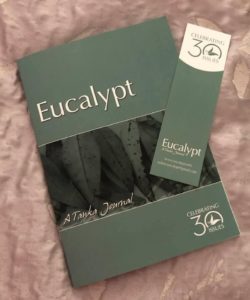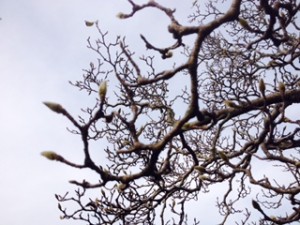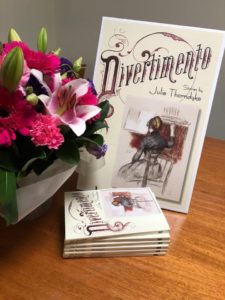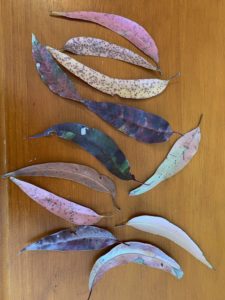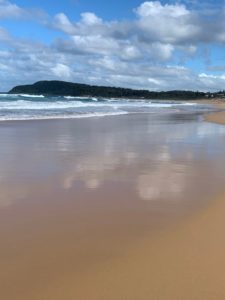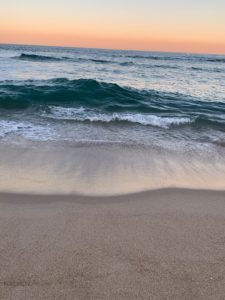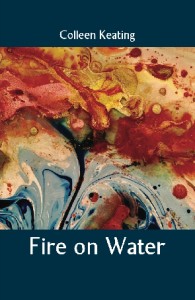Report on Bowerbird Tanka Workshop No. 21 –
by
Colleen Keating
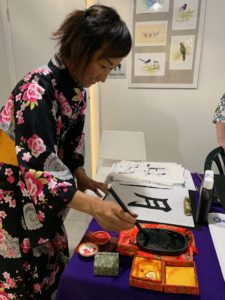
Congratulations. The Bowerbird Tanka group, which convenes at Pearl Beach, has come of age. This is the 21st Tanka workshop. Thank you to Beverley for her constancy and dedication. I am a fairly newcomer but am amazed at her focus in the midst of so many other activities.
The tanka date on our calendar is very special. And thanks to the delegates some of whom traveled from as from Tamworth, Canberra, Newcastle and Bathurst to share in the love of tanka.
Of course the drive to Pearl Beach is a journey in itself. One can notice the burdens being left behind as you drive down into its calm repose, cradled between forest and sea. When I arrived, there was already a buzz of friends meeting at Crommelin Cottage in the sanctuary of the Pearl Beach Arboretum. The tankaists so gathered were Beverley George, Michael Thorley, Carole Harrison, Beatrice Yell, Catherine Smith, Julie Thorndyke, Kent Robinson, Anne Benjamin, Dy Andreasen and Colleen Keating. Unable to attend – Marilyn Humbert, Hazel Hall, Kathy Kituai, Gail Hennessy, Samantha Hyde, Carmel Summers, Margaret Grace and Yvonne Hales .
Despite the pall of smoke that covered most of NSW, the Arboretum continued to have its own ambience with a brush turkey that scratched through the leaf litter for its insects and bugs, mostly nearby the cottage as if it was eavesdropping on us.
The first session on the programme – Share a favourite tanka written by someone you have never met but which had an influence on how you came to tanka. The presenters were Julie Thorndyke on a most appropriate tanka for the fire haze and acrid air we have been breathing, written by Debbie Strange, Canada.
Carole Harrison appraised a tanka by Sandi Pray [USA]
Kent Robinson appraised a tanka by Claire Everett. [UK]
Taking the time to focus on a tanka and listen to the insights of one who has pondered on it for some time is a valuable and enriching exercise.
These sharings are available on the Eucalypt website under Bowerbird.
In the second session everyone then had the opportunity to share ‘a tanka which lingers.’
For this, each of us stands and shares a tanka without comment. The silence between each, is like the silence between breaths. A moment of time to let the tanka resonate and become part of you. For me the power is like the collected wisdom of a group doubled, as we read and reflect on what another has reflected on and written.
. 
The next hour we were really spoilt with the presence of Tomoko Oka, a Japanese Calligraphy Artist. Tomoko-san gave us a very gentle introduction to Calligraphy which was a practical exercise in brushing several kanji. It was an honour for all of us to be in her presence. We all entered into the spirit of the exercise, which was centering and some of us found ourselves in a meditative state. This is one of the many arts that is done as only the Japanese know how.

To finish off our morning, a local artist and musician Philip Rich played his guitar and sang a song he wrote and composed himself. It was inspired by an acknowledgement to country he once heard. The refrain was ‘If you’re a friend of mother earth you tread softly on this land’. During our lunch it was time to share with each other and be serenaded by Phillip singing for us some of the work of Nobel winning poet, Bob Dylan and our own Casey Chambers.

A highlight for all of us was the afternoon workshop given by Michael Thorley.
The title of his workshop was ‘shasei – Where Tankaists Fear to Tread? Let’s Go There’.
And go there we did, lead by Michael’s skilful presentation. For some of us, ‘shasei’ was a
new term, a new concept and a very interesting style of writing Tanka. It originated withwhose home some of us have had the honour of visiting in Matsuyama City on Shikoku Island, Japan.
It is a style of writing tanka where you emphasis ‘a sketch from life’ – writing of what one observes however mundane, so that the reader also experiences the scene and understands what has moved them. We had the sanctuary of the Arboretum to walk around and find our moment to try out writing our idea of shasei. We gathered again and shared our thoughts and words.
The day ended with several reports from other tanka groups and our plan to regather in the Autumn of 2020.
Colleen Keating
